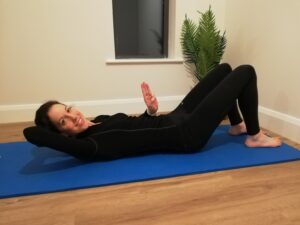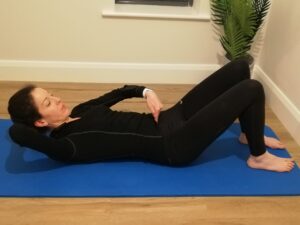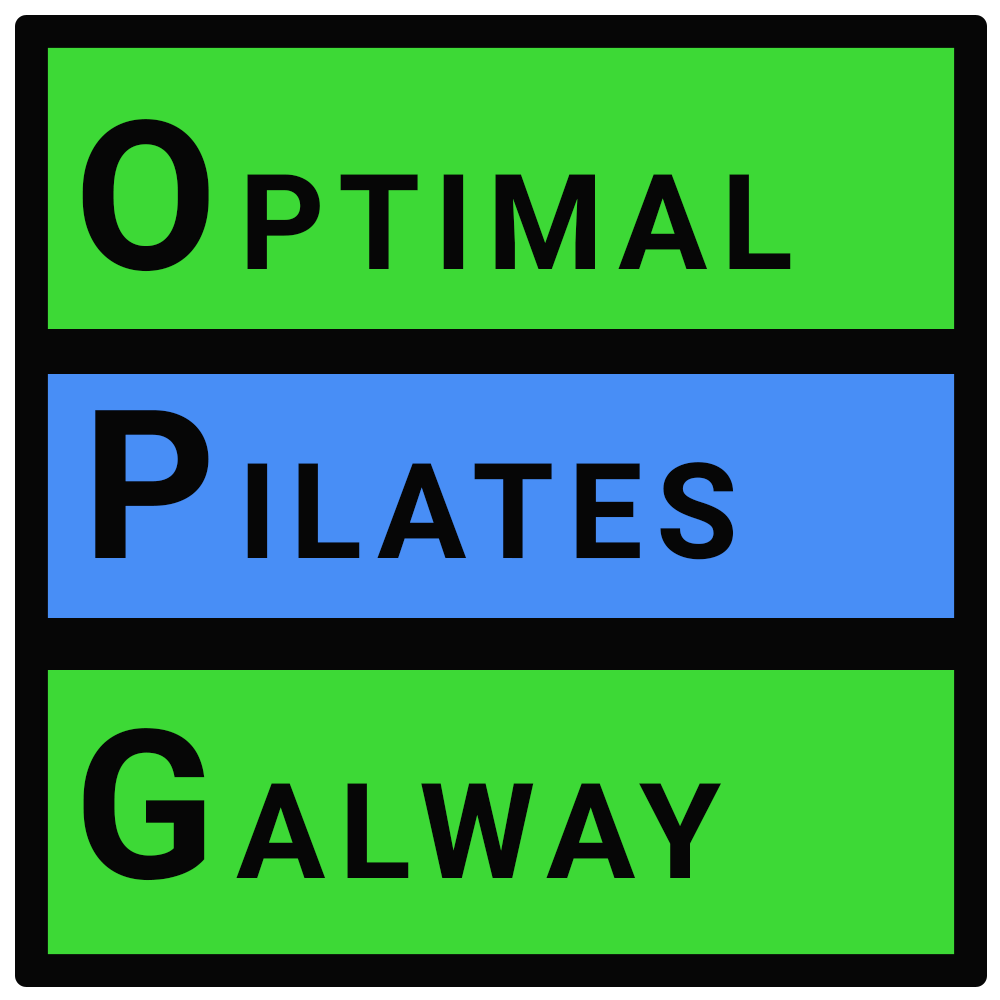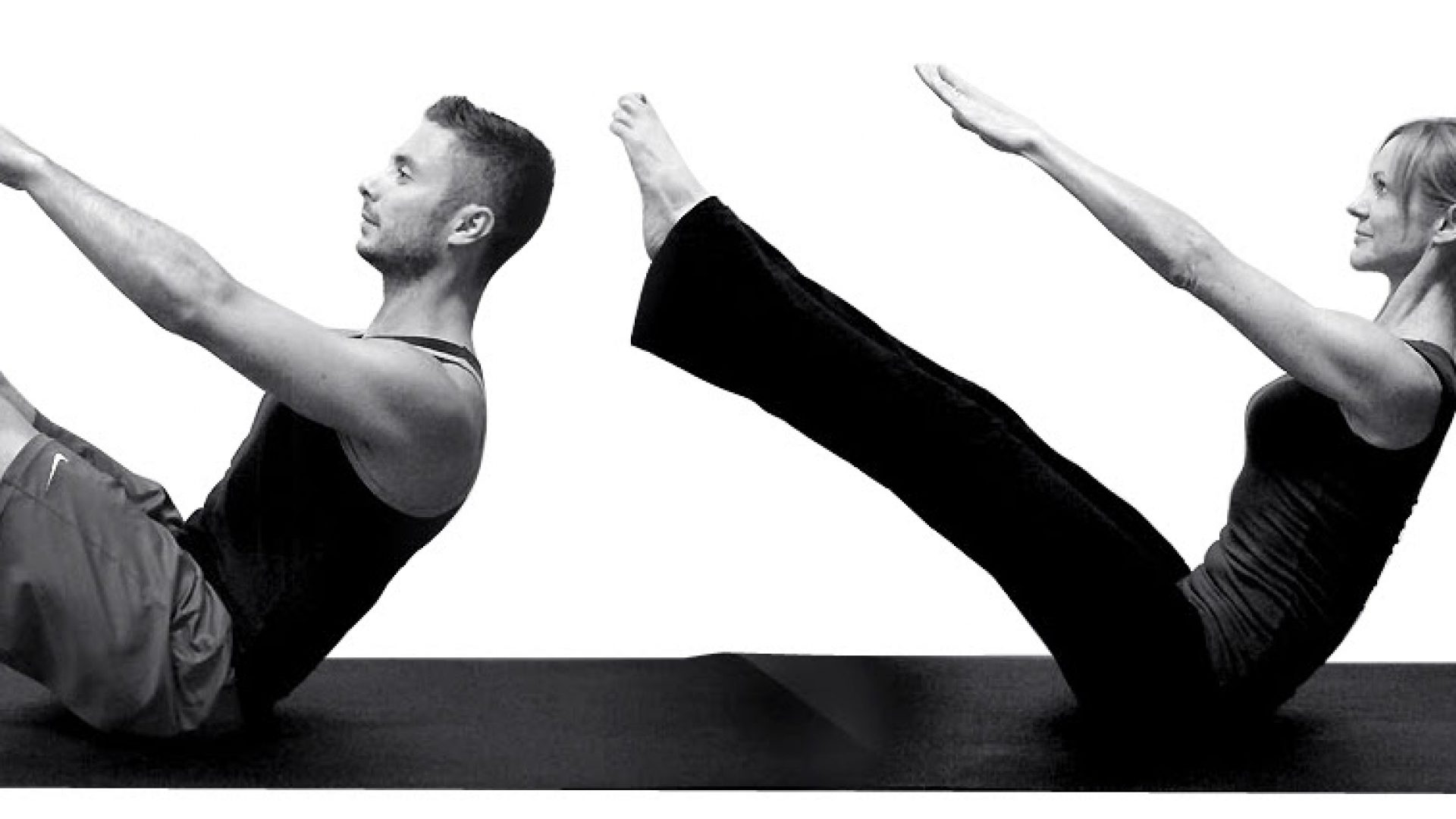Intermediate Tuesdays 19:40-20:30 Oughterard Courthouse
| Jan 09 | Jan 16 | Jan 23 | Jan 30 | Feb 06 | Book! [5 classes = €60] |
Opti-MAN Pilates for Men Tuesdays 20:40-21:30 Oughterard Courthouse
| Jan 09 | Jan 16 | Jan 23 | Jan 30 | Feb 06 | Book! [5 classes = €60] |
Beginners Thursdays 20:10-21:00 Oughterard Courthouse
| Jan 11 | Jan 18 | Jan 25 | Feb 01 | Feb 08 | Book! [5 classes = €60] |
Beginners Thursdays 21:05-21:55 Oughterard Courthouse
| Jan 11 | Jan 18 | Jan 25 | Feb 01 | Feb 08 | Book! [5 classes = €60] |
Intermediate Tuesdays 19:40-20:30 Oughterard Courthouse
| Nov 07 | Nov 14 | Nov 21 | Nov 28 | Dec 05 | Dec 12 | Book! [6 classes = €72] |
Opti-MAN Pilates for Men Tuesdays 20:40-21:30 Oughterard Courthouse
| Nov 07 | Nov 14 | Nov 21 | Nov 28 | Dec 05 | Dec 12 | Book! [6 classes = €72] |
Beginners Thursdays 20:10-21:00 Oughterard Courthouse
| Nov 09 | Nov 16 | Nov 23 | Nov 30 | Dec 07 | Dec 14 | Book! [6 classes = €72] |
Beginners Thursdays 21:05-21:55 Oughterard Courthouse
| Nov 09 | Nov 16 | Nov 23 | Nov 30 | Dec 07 | Dec 14 | Book! [6 classes = €72] |
Pilates is a low-impact form of exercise developed by Joseph Pilates in the early 20th Century. Son of a German gymnast, Pilates spent his lifetime, as a gymnast, body-builder, circus performer, P.O.W (in England during World War I), and later a professional trainer, working out a system that he called ‘Contrology’. Eventually it was named after its creator. Pilates is a whole-body workout that focuses on developing core strength, while improving posture, flexibility, muscle imbalances and coordination. All the classes are performed on a comfortable mat, which is provided for you.
Pilates is suitable for anyone looking to increase their general fitness, prevent/recover from injury, or improve strength and flexibility. The brief Screening Form completed as part of booking a course allows exercises to be tailored to different abilities and requirements. Physio-led Pilates offers something to people of all ages and levels of fitness. For example, office-workers who may spend long periods of time sitting, should find it enables better flexibility, reduced stiffness and increased strength. For already fit sportspeople/athletes it can improve core control, strength and coordination, and aid performance in many events while minimising some types of injury.
Small class sizes are guaranteed. Having a maximum of 12 participants per class allows for closer supervision to every participant. A physiotherapy background allows you to exercise in confidence while benefiting from a wealth of knowledge regarding anatomy, posture, rehabilitation and injury prevention. Part of registration includes a brief Screening Form, which ensures individual needs are considered in each class.
How it works: In-person classes are returning as we adjust to the ‘new normal’, in an exciting new location – the Oughterard Courthouse. Class numbers are small to ensure personalised attention from the Chartered Physiotherapist as needed, so registration is essential.
Classes last from 50-60 minutes and generally run in blocks of 6 weeks. Each exercise can be modified to suit your ability, while each week aims to build on strength and coordination gained in the previous session.
Whether it’s Ante-natal, Post-natal, Beginners, Improvers or Men-only, the aim is to provide a relaxed and friendly atmosphere to exercise in safely, under the expert care of a Chartered Physiotherapist. A comfortable exercise mat is provided for you – just bring some water and wear comfortable clothes you can move in.
Beginners classes
This class provides a complete introduction to the basic principles of Pilates, with individualised feedback throughout the class, so that you learn and gain confidence in your technique. A whole-body workout is guaranteed using a variety of positions. Every exercise can be modified to suit your ability. All you need is a comfortable exercise mat.
Intermediate classes
Intermediate classes are done at a slightly faster pace, challenging the strength and coordination gained at a beginner level. While those who have a good baseline fitness and minimal health concerns may be suitable to join this class directly, previous Pilates experience is strongly recommended. If you’re not sure which class is most suitable for you contact me first for advice. This class will apply your existing Pilates experience and further strengthen your core and mind-body coordination.
OPTI-BUMP Pregnancy Fitness
Who can do this class?
This Physiotherapist-led program is for women who have passed their first trimester and have had their first scan. How late in your pregnancy you join the class depends on how you are feeling and how active you have been throughout your pregnancy. Regular physical activity is recommended for all women experiencing a normal low-risk pregnancy. However it is advised that you check with your GP/Obstetrician before starting any new exercise programme.
This class allows you to exercise confidently, safe in the knowledge that all the exercises are designed specifically with pregnant women in mind. Progressively challenge your body with guidance from a Chartered Physiotherapist, and enjoy the support and motivation of other expectant mums.
Classes will begin with warm-up and mobility exercises, then progress to include a mix of aerobic, resistance and stretching exercises.
Exercises will be performed in a variety of positions (kneeling, standing, side-lying, sitting, on a ball, against the wall etc).
Before booking your place, please read the list of Absolute and Relative Contraindications to make sure this class is suitable for you. Contact Lucy if you have any questions.
You will need:
- a gym ball
The gym ball should be well inflated and allow you to sit comfortably with your hips in line with (or slightly higher than) your knees, while your feet are flat on the ground and knees bent. (see approximate size guidelines below).
Size Guide: Choose the ball that is the closest match to your height listed below:
4’9″ to 5’3″ : 55 cm ball
5’4″ to 5’8″ : 65 cm ball
5’8″ + : 75 cm ball
Is OPTI-BUMP for you?
Absolute Contraindications
You are not suitable for class if you have any of the criteria below:
- haemodynamically significant heart disease
- restrictive lung disease
- incompetent cervix or cerclage
- multiple gestation at risk of premature labour
- persistent second- or third-trimester bleeding
- placenta previa after 26 weeks gestation
- premature labour during current pregnancy
- ruptured membranes
- pre-eclampsia or pregnancy-induced hypertension
- severe anaemia
Relative Contraindications:
- anaemia
- unevaluated maternal cardiac arrhythmia
- chronic bronchitis
- poorly controlled Type 1 diabetes
- extreme morbid obesity
- extreme underweight (BMI <12)
- history of extremely sedentary lifestyle
- intrauterine growth restriction in current pregnancy
- poorly controlled hypertension
- orthopaedic limitations
- poorly controlled seizure disorder
- poorly controlled hypothyroidism
- heavy smoker
You exercise at your own risk. Please ensure your home environment is safe for you to exercise in – free from obstacles/trip hazards.
OPTI-MUM Post Natal Pilates
Opti-MUM is a class specifically designed for new mums by a Chartered Physiotherapist. The class is suitable from 8 weeks post natal if you had a vaginal delivery, or from 10 weeks following a Caesarean section if you have been cleared by your healthcare professional (GP/Public health nurse).
The focus is on re-engaging the muscles which naturally become stretched or weakened during pregnancy. This whole-body workout will target your core/tummy muscles and the pelvic floor, while also improving leg and shoulder strength (so important for all that lifting!). Gentle stretching exercises will help restore your mobility and flexibility.
Baby friendly – babies don’t do timetables….you’re welcome to have baby beside you during class. Stop for a feed/nappy/cuddle as needed.
A comfortable exercise mat is provided for you. You may wish to bring a blanket so baby can lie beside you.
Try this simple self-assessment before joining the Post Natal Class. It will help you identify if you are suitable for the class, if we need to modify some of the exercises for you, or if you would benefit from a 1:1 assessment with a Women’s Health Physiotherapist.
This simple self-test will help you determine if you have diastasis recti. Please note it is a self-test, and not a medical diagnosis. If you are especially concerned about the opening or width of the Diastasis, you are advised to ask your doctor, public health nurse or consult with a Chartered Physiotherapist specialising in Women’s Health.
- Lie on your back with your knees bent, and the soles of your feet on the floor.
- Place one hand behind your head, and the other hand on your abdomen, with your fingertips across your midline-parallel with your waistline– at the level of your belly button.

- With your tummy relaxed, gently press your fingertips into your abdomen.
- Supporting the head with the hand, roll your upper body off the floor into a “crunch,” making sure that your ribcage moves closer to your pelvis.
- Move your fingertips side-to-side across your midline, feeling for the right and left sides of your rectus abdominis muscle. Repeat the test at, above, and below your belly button.

- You may visibly notice a ‘cone-shape’ protrusion or ‘doming’ occur as you crunch up. If it appears wider than 2cm apart. D.R. has occurred and modifications need to be taken when exercising your abdominals. If you can easily fit three fingers into the abdominal gap, you should seek 1:1 assessment with a Chartered Physiotherapist specialising in Women’s Health before signing up to the class.
Ruth: Post-natal Pilates
Really great class with excellent guidance and support from Lucy.
Antonia
Excellent class and got individual attention if stuck on the activities
Danielle: Post-natal Pilates
I have really enjoyed the classes and I have felt so much better after doing them. The exercises are great, not too strenuous but definitely get a sweat on. I will be highly recommending your classes for anyone looking to do pilates, pre or post natal.
Evelyn
Brilliant class! I enjoy it so much and look forward to it. Lucy is great, so encouraging.



